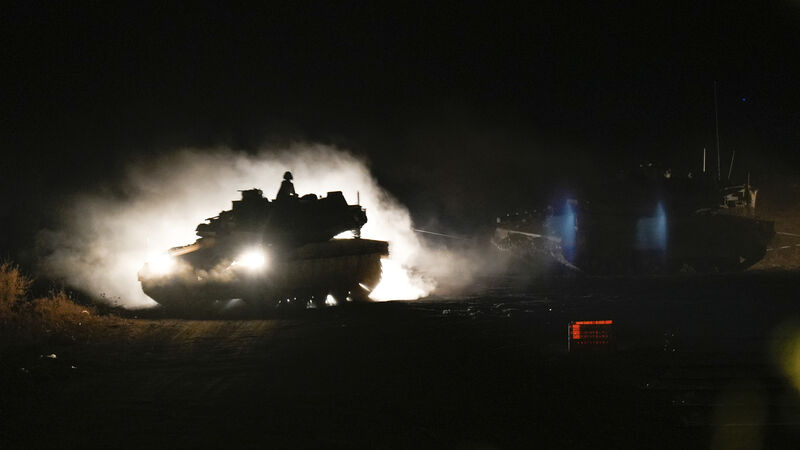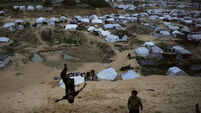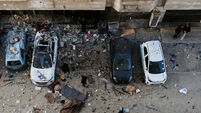Israeli military orders evacuation of several Lebanese communities near border

An Israeli tank manoeuvres in northern Israel near the Israel-Lebanon border, Monday, Sept. 30, 2024. Picture: AP Photo/Baz Ratner
The Israeli military has warned nearly two dozen Lebanese border communities to evacuate, hours after launching what it said was a limited ground incursion against the Hezbollah militant group.
The warning, posted by the Israeli military’s Arabic spokesman on the social media platform X, formerly Twitter, specified around two dozen communities in southern Lebanon and asked people to evacuate north of the Awali River, some 36 miles (60km) from the border.














